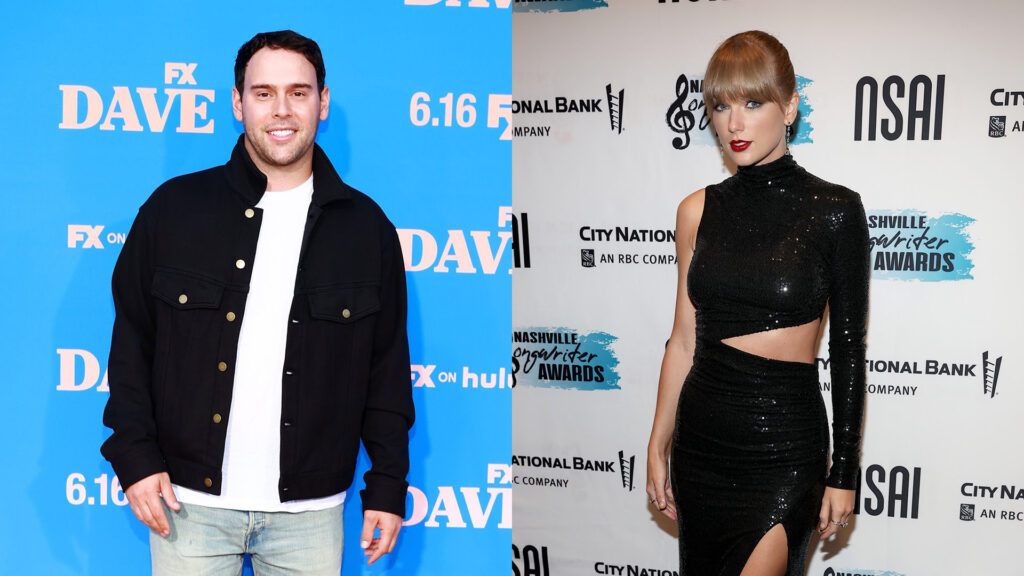In an extensive interview with with NPR, music executive Scooter Braun said he isn’t satisfied with how the Taylor Swift catalog acquisition went down.
“I learned an important lesson from [the Big Machine acquisition]. When I did that deal, I was under a very strict NDA with the gentleman who owned it, and I couldn’t tell any artist,” Braun told Jay Williams, whom he identified as “my friend since we were teenagers hooping” on social media. “I wasn’t allowed to. I wasn’t legally allowed to. … So the regret I have there is that I made the assumption that everyone, once the deal was done, was going to have a conversation with me, see my intent, see my character and say, ‘Great, let’s be in business together.’ And I made that assumption with people that I didn’t know.”
When Braun purchased the Big Machine catalog from Scott Borchetta in 2019, Swift’s first six studio albums were included as part of the acquisition. Swift was vocally critical of the decision, and said when she attempted to enter negotiations with Braun that his team asked her to sign “an ironclad NDA stating I would never say another word about Scooter Braun unless it was positive.”
The 41-year-old said he was “excited to work with every artist on the label,” but when they finalized the deal “all hell broke loose.”
“I think a lot of things got lost in translation. I think that when you have a conflict with someone, it’s very hard to resolve it if you’re not willing to have a conversation,” he added, as transcribed by Variety.
In response to the acquisition, Swift ultimately decided to re-record her albums that were released by Big Machine. She’s since released remade versions of 2012’s Red and 2008’s Fearless. She’s also released a number of new versions of tracks from 1989, although she hasn’t announced a release date for the full thing project.
“I can’t put myself in a place of, you know, arrogance to think that someone would just be willing to have a conversation and be excited to work with me,” Braun continued. “I don’t know these people. So when I did the deal with HYBE, I took 50 million of my own stock that I received, and I gave it to my employees and my artists. And it—I didn’t think it was going to become public, but it was a publicly traded company, so I can talk about it now ’cause it was very much out there. And I made sure that everyone participated significantly.”
The situation with Swift inspired Scooter Braun to get his artists more involved directly, as he felt the whole way it went down was “unfair” from his perspective, but unfair from the other side, too. “I choose to look at it as a learning lesson, a growing lesson, and I wish everyone involved well,” he said. “And I’m rooting for everyone to win because I don’t believe in rooting for people to lose.”
Stream NPR’s conversation with Braun below or watch the video above.

